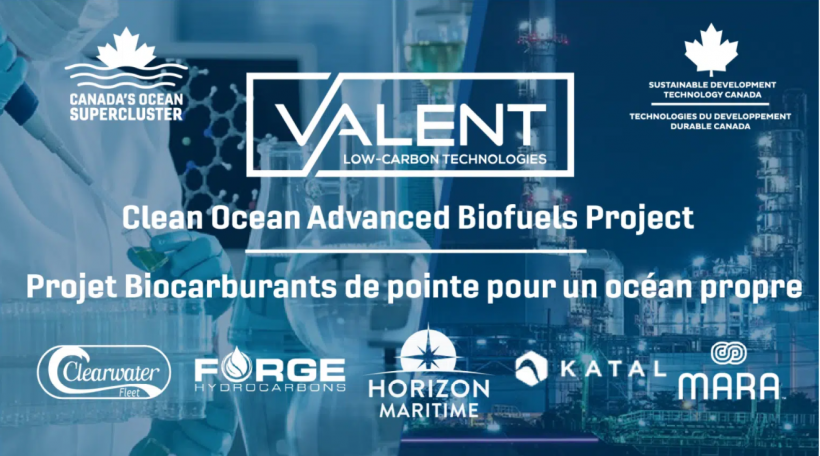A consortium of companies – some backed by billionaire John Risley – has unveiled a $65 million project that aims to produce low-carbon marine fuel made out of waste from forestry and agriculture.
Canada’s Ocean Supercluster on Tuesday announced the project, officially called the Clean Ocean Advanced Biofuels Project, and will contribute $5.7 million. The private members of the consortium with pay in 10 times that amount, and the federal government’s Sustainable Development Technology Canada, or SDTC, will chip in $2.3 million.
The project, which is led by Ontario-based Valent Low-Carbon Technologies, aims to manufacture a new form of liquid marine fuel that produces 90 percent fewer greenhouse gas emissions than conventional fuel. The new fuel, which the group aims to make available across the maritime ecosystem at affordable prices, will be made from sawdust, wood chips and agricultural waste – products that can be sourced in large quantities in Canada.
"With over 50,000 merchant vessels circling the globe, we have a huge challenge to reduce transport emissions in the ocean economy,” said Valent Co-Founder and Executive Vice-President Karlis Vasarais in a statement. “The Ocean Supercluster’s financial support and its extensive network of collaborators fosters an accelerated and collaborative pathway to build the renewable fuels value chain for marine transport.”
Valent is dedicated to developing low-carbon fuels such as sustainable aviation fuel, low-sulphur marine fuels, green hydrogen and renewable diesel. The company has been going for a few years, and in February 2021 said it had raised more than $150 million from such investment groups as Winnipeg’s James Richardson & Sons and John Risley’s CFFI Ventures. (Risley and the Richardson family previously collaborated in backing Ocean Nutrition Canada, which they sold for $540 million in 2012.)
According to the Ocean Supercluster press release, the other members of the project consortium are:
- FORGE Hydrocarbons – Based in Oakville, Ont., FORGE was spun out of the University of Alberta and has developed a “Lipid-to-Hydrocarbon technology” that can be used to create renewable fuel. FORGE Chief Executive Tim Haig is also the CEO of Valent.
- Mara Renewables – Based in Dartmouth, Mara is an R&D company whose mission is to become the leading developer of advanced, sustainable algae-based bio-products. The company, founded by Risley in 2012, brings a deep knowledge of using algae in bio-products to the consortium.
- Clearwater – Halifax-based Clearwater is one of the world’s largest vertically integrated seafood companies. Founded by Risley and Colin MacDonald in 1976, the company was acquired by Premium Brands of British Columbia and a coalition of Mi'kmaq First Nations in 2020.
- Katal Energy – Based in Calgary, Katal is a low-emissions alternative fuel company that has developed a novel “nano-emulsion drop-in fuel” called Katal Green Fuel. The company was acquired by Valent in 2020.
- Horizon Maritime – Based in St. John’s, Horizon is a marine services company, providing such tasks as supporting the offshore energy industry and providing nautical crew.
- SDTC – SDTC is a federal agency that supports Canadian clean technology companies.
The Supercluster statement said the Clean Ocean Advanced Biofuels Project will create more than 150 direct jobs while positively impacting marine life and air quality.
It is the largest Ocean Supercluster project announced to date in that its $65 million total value is more than double the $29 million Ocean Aware project, which had been the largest project. However, the Supercluster’s $5.7 million contribution to the latest project is less than the $13.7 million it gave to Ocean Aware.










